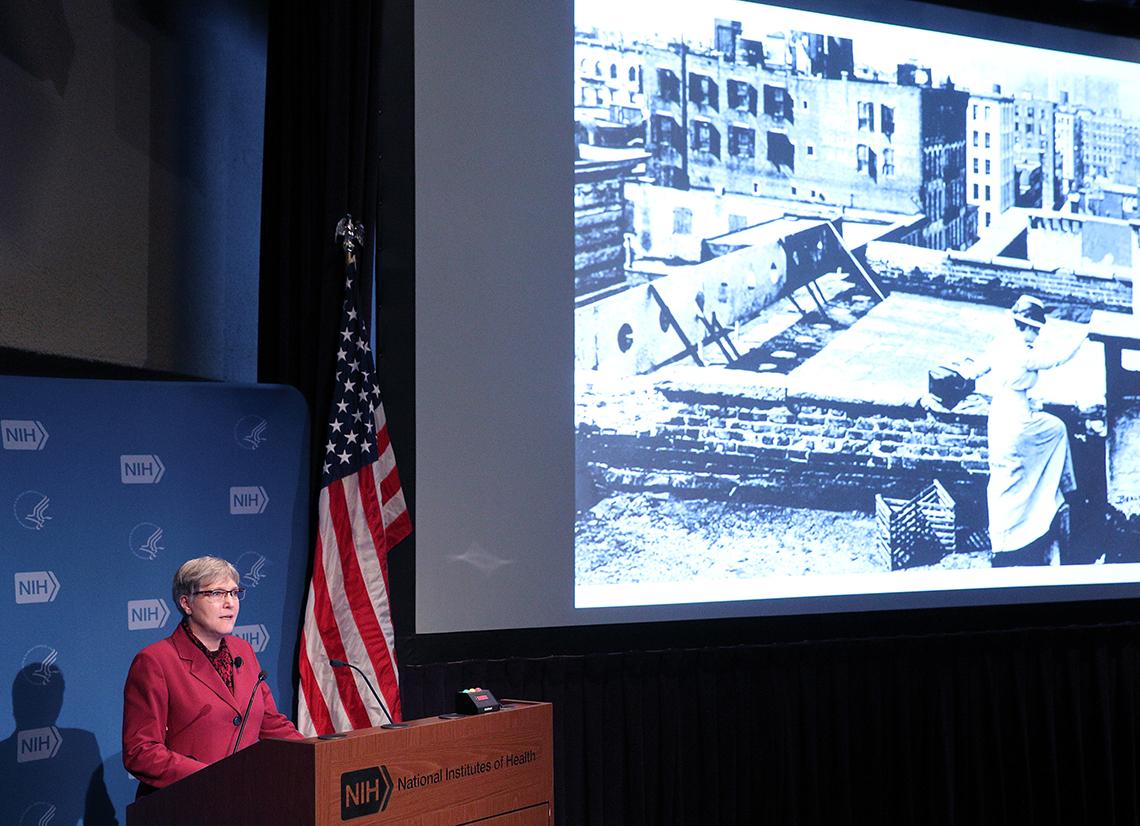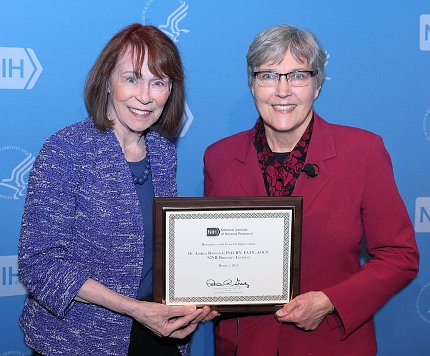Symptom Science
Barsevick Shares Symptom Science Lessons at NINR Director’s Lecture

“I’m here today to tell you about my journey, my experience and the lessons that I’ve learned along the way.”
So began the first NINR Director’s Lecture of 2018, as Dr. Andrea Barsevick, one of the few experts studying symptom clusters in the United States and internationally, took the audience through her journey as a nurse scientist studying symptoms, symptom management and palliative care.
“In these postmodern times, health care professionals tend to think of cancer and other chronic diseases as objective reality, pathophysiological processes that we can manage, cure and occasionally palliate,” she said. “However, there’s another aspect to disease, the patient experience; the subjective reality that can only be understood by learning from the individual going through it.”
Barsevick’s journey toward symptom science research began when, “as a young nurse with a newly minted master’s degree,” she examined how a more comfortable inpatient bed bath might help reduce anxiety. By conducting this study, Barsevick learned how influential one symptom can be on others. For those patients not defined by pain, the intervention was effective in reducing anxiety. But for those patients still experiencing pain, the intervention did not help. She discovered early on that an intervention for one symptom could be affected by other symptoms. That lesson was something that stuck with her.

As Barsevick’s career as a nurse scientist continued, she learned important lessons about research, one being that there is always something to be gained even if a study’s outcomes do not produce the results one expected. For instance, hoping to focus on strengthening a previous intervention on fatigue, Barsevick conducted a clinical trial that did not deliver any positive results. However, quoting Mark Twain, she noted, “‘Good judgment’ comes from experience. Experience comes from ‘bad judgment.’” Barsevick looked at what could have gone wrong with the study and gained knowledge as to what questions needed to be asked in future research.
She concluded her talk with several recommendations for researchers: study symptom clusters, invest in palliative care research and repositories for patient-reported outcomes. She also left the audience with some advice: “As clinicians and scientists interested in symptom management, we must walk hand-in-hand to better understand and treat symptoms to improve our patients’ quality of life and provide the chance for optimal survival.”
Barsevick is a professor in the population science division of medical oncology at Thomas Jefferson University. She is known internationally for her research on symptom clustering during and after cancer treatment, particularly fatigue and its interactions with sleep disturbances, depressed mood and quality of life.
The NINR Director’s Lecture Series is designed to bring the nation’s top nurse scientists to NIH to share their work and interests with a trans-disciplinary audience. Barsevick’s lecture is available on NINR’s YouTube channel at https://youtu.be/IAiNkJyJurM.
